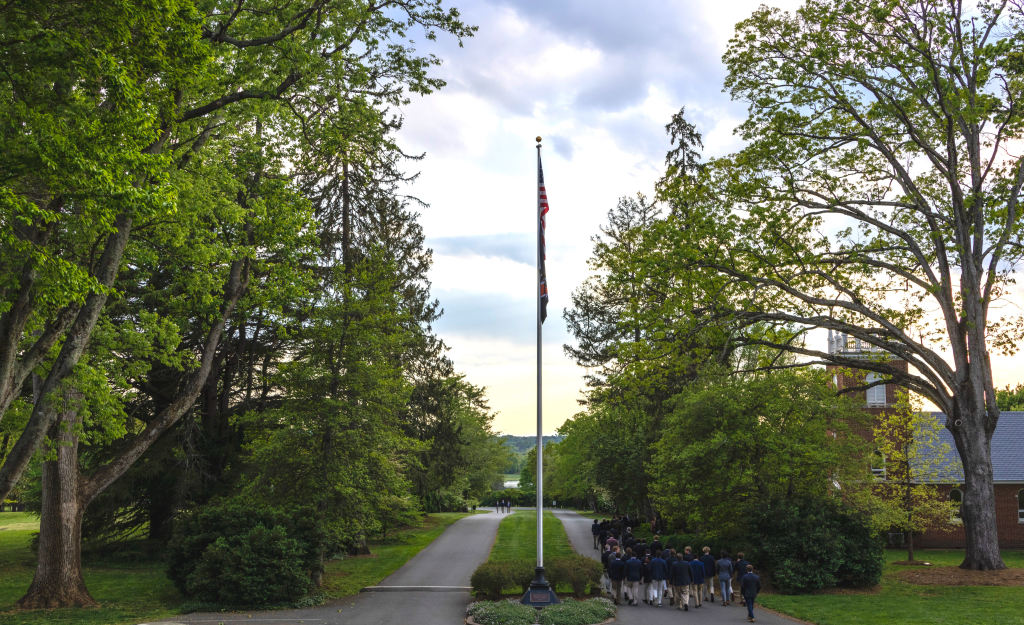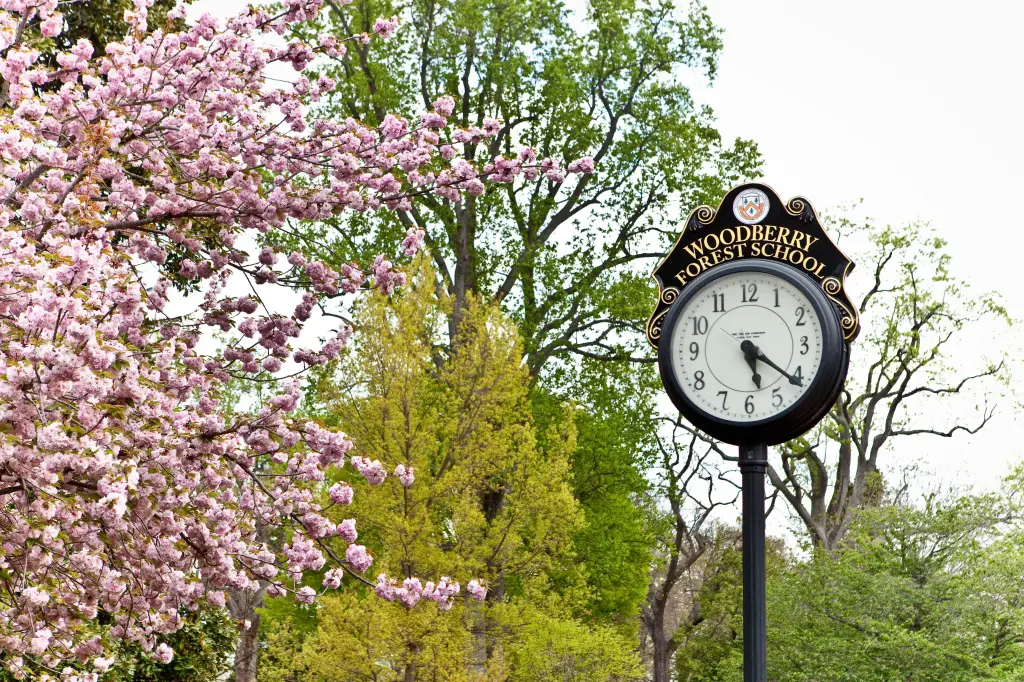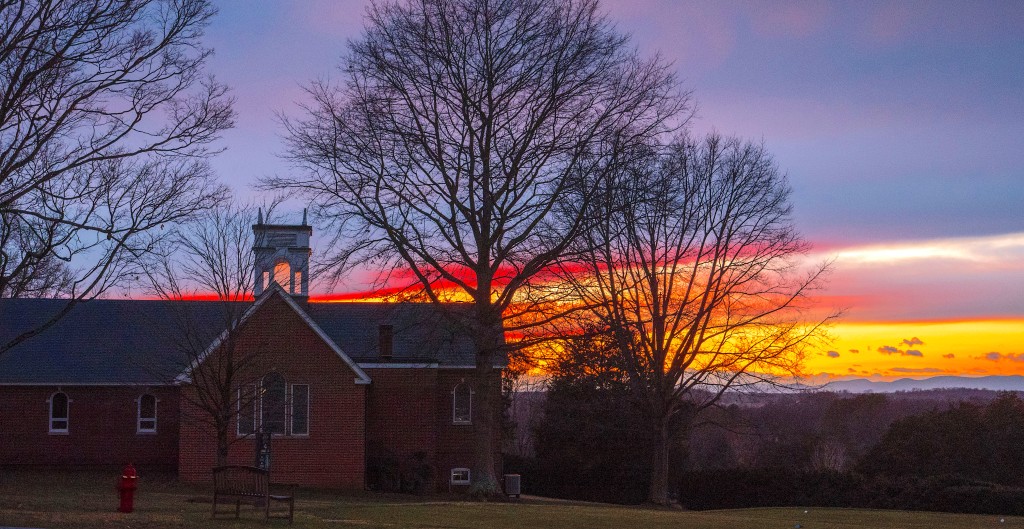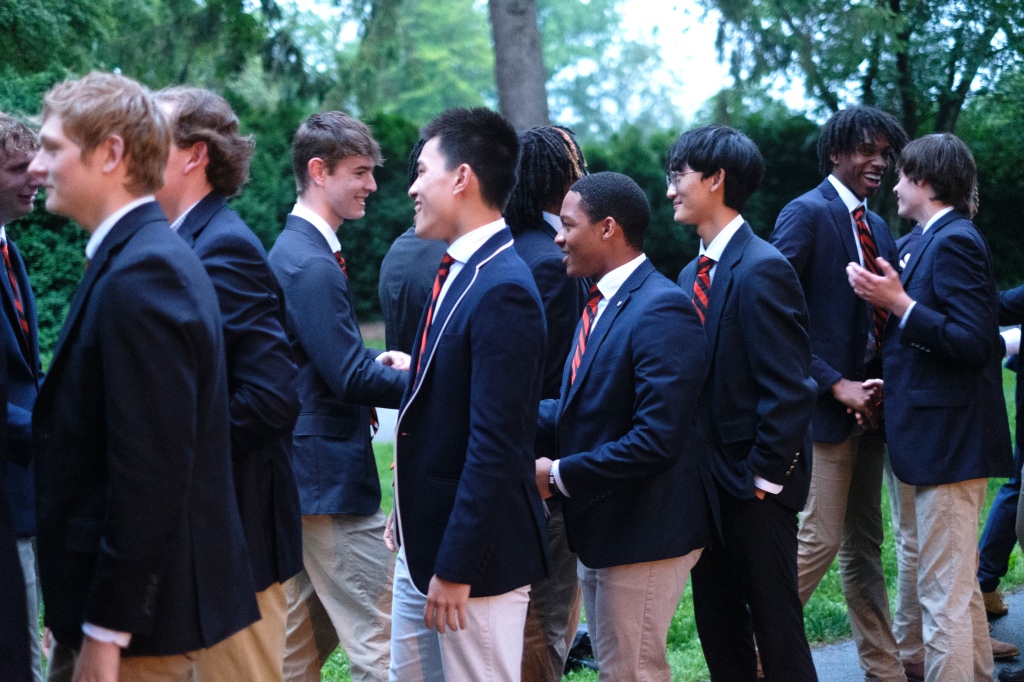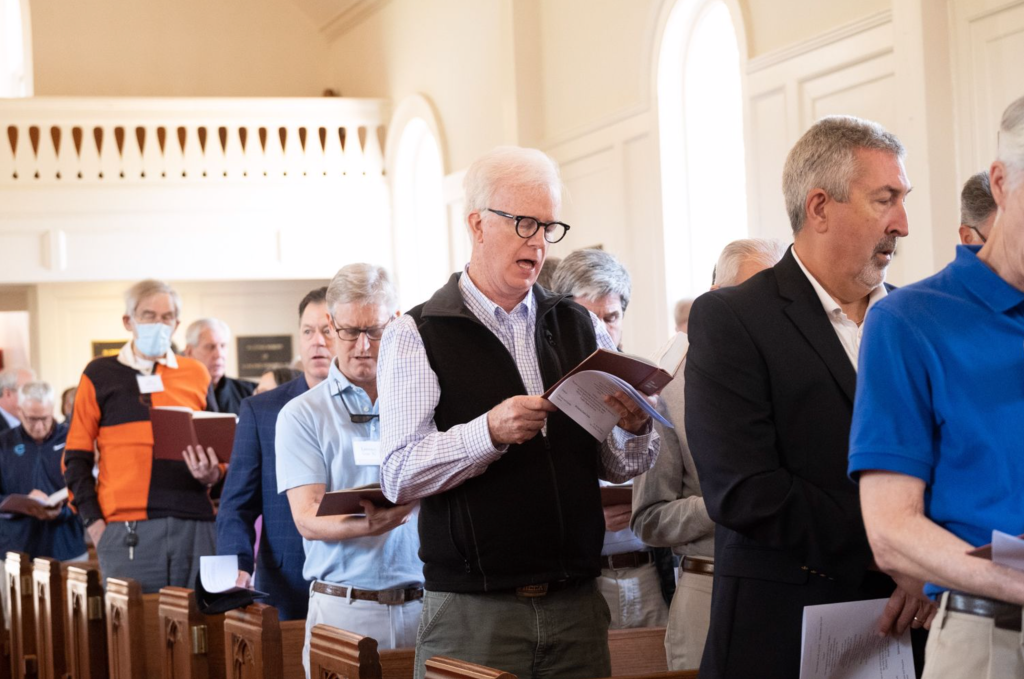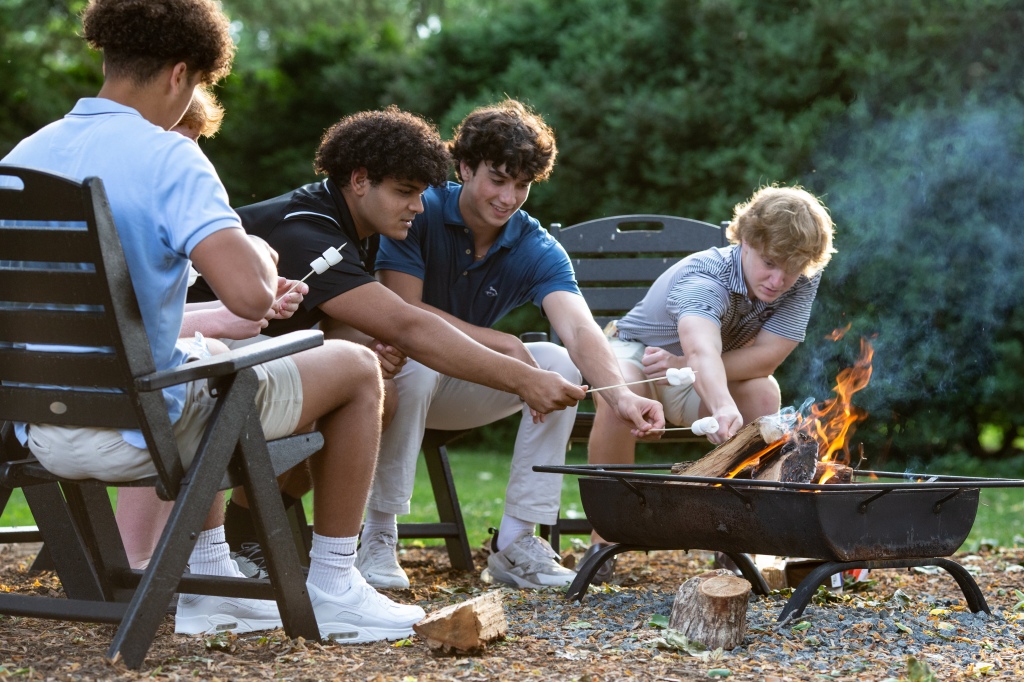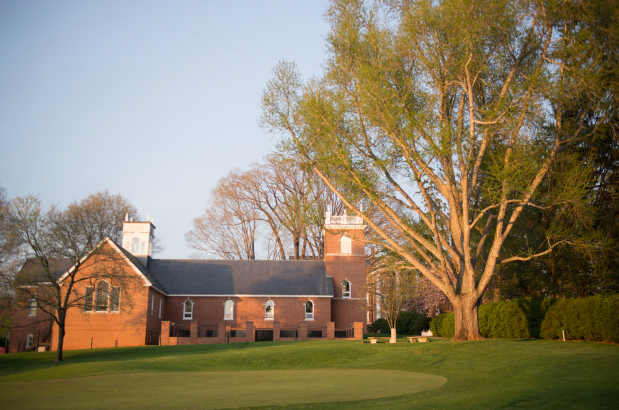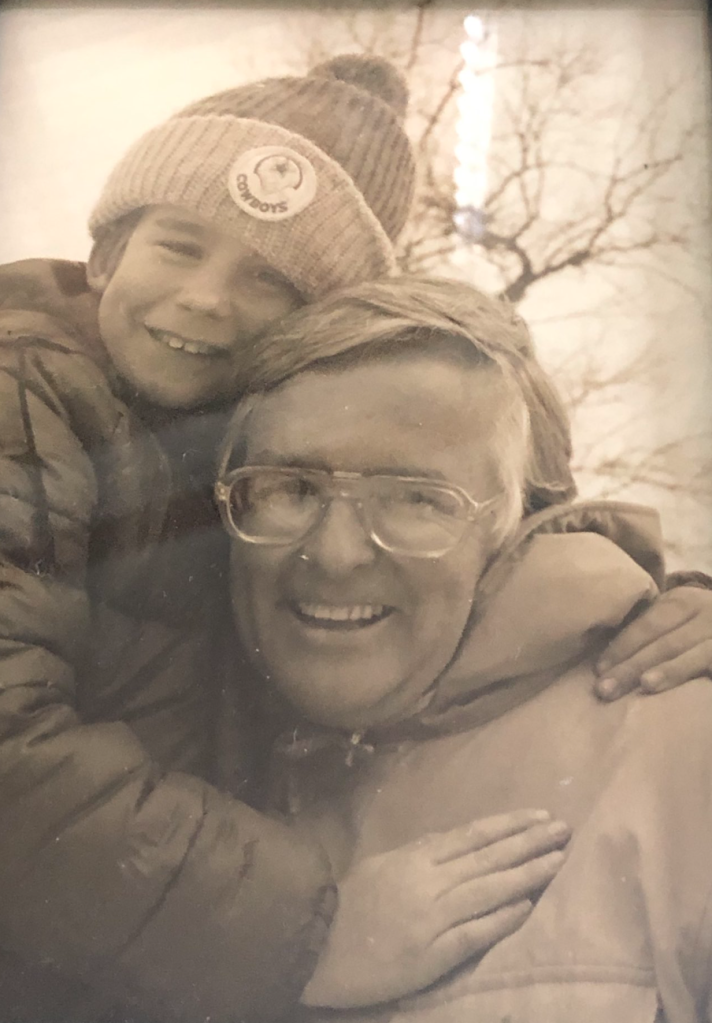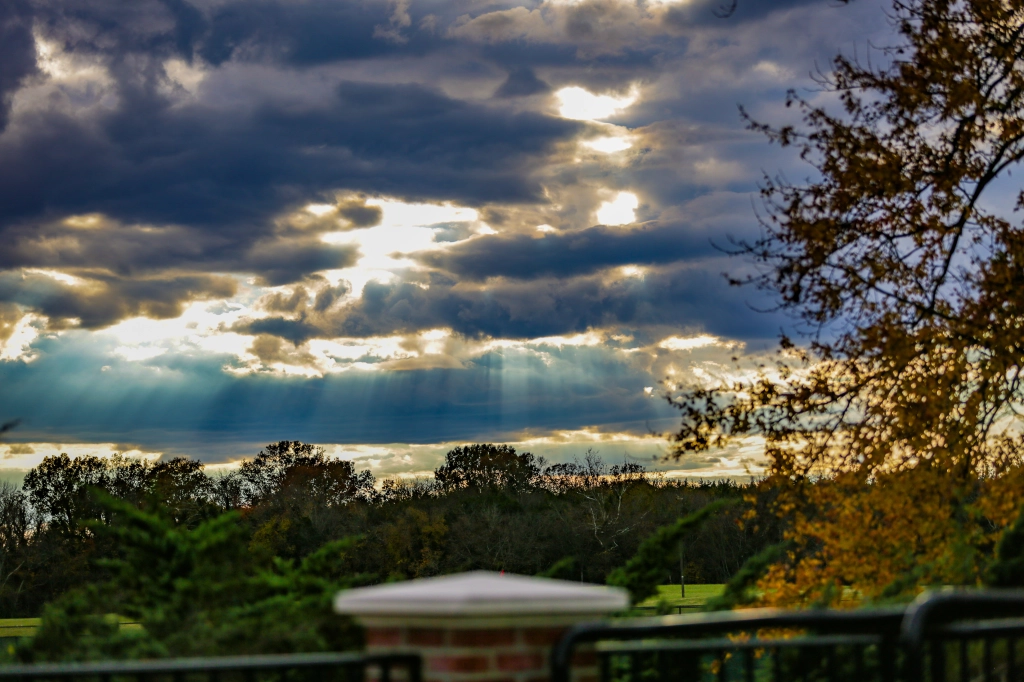
Photograph perspective of the sky as viewed from Hanes Field.
The following sermon was delivered by Headmaster Byron Hulsey on January 8, 2024 during the service at St. Andrew’s Chapel.
After an extended break it’s always good for me to see us all assembled together, now in the new year as we look forward to challenges and opportunities, known and unknown. But at this time of year, it can be hard to be “happy.” Generations of Tigers agree: this is the toughest stretch of the school year. It’s cold, wet, and sometimes miserable. The sun sets early and rises late, and it’s hard to be outside. Some of us are jet-lagged after flights from halfway around the world. Others are already exhausted. Many of us are a little homesick, at least for the holidays, when we slept late, ate our favorite foods, and did more of what we wanted to do, and maybe less of what we had to do.
The driving word here is “darkness.” Our counseling team shares practical tips for how to deal with darkness and anxiety and depression, and those practices include getting good sleep, eating a balanced diet, and exercising regularly. But those good habits are just tools, and don’t do much to make the days last longer or the weather to get warmer. In this darkness, we can get ourselves in a rut-like cycle of self-pity and edgy bitterness. I’ve seen it happen, winter after winter.
If the practical tips of good sleep, a healthy diet, and routine exercise don’t lead us out of the darkness, what will? Tonight’s reading from Genesis gives us a clue. In the midst of the “darkness that covered the face of the deep,” God said, “‘Let there be light,’ and there was light.” It’s light that overcomes darkness and generates hope and courage and love. It is light that is the life force of what it feels like to belong. Through the undeserved gift of life, each of us has been granted that light, and my question for you tonight is to sit for some time with the question, “What is the source of your light?”
It’s a personal question, and it’s important enough to warrant a personal answer. I feel the force of light from moments that I’m paying attention in nature. Over the holidays I was in Denver and on one majestic day Ben, Claire, and I went for a walk at Red Rocks. The stunning beauty of the rock formations set against a cloudless blue sky energized me and reminded me that beauty surrounds on every side, here at Woodberry and beyond. We’re called on to pay attention and take time to notice. A star-swept sky on a clear, dark night is a reminder of unbroken light in the universe, and a reminder that we are just one small speck in God’s creation. If I take time to ponder, I’m reminded of the wonder of life and the utter mystery of my existence. I find that energizing, not paralyzing.
Beyond nature, another reminder of light for me is family. The oldest boys and veteran faculty know that my wife, Jennifer, died nearly three years ago from cancer. I miss her deeply every day, but she remains an expression of radiant light in my life, and in Ben’s and Claire’s lives, too. This may sound strange to some of you, but I’ve gotten to a place where I don’t want to stop grieving Jennifer’s loss, because putting that down would be like snuffing out the light that she remains in my life.
Sometimes it’s the mere presence of a loved one in our lives that generates light, but occasionally it’s what they say. Not long before Jennifer died, my father died. When the end was near, Jennifer, Ben, Claire, and I went out to Parker County, Texas, in the summer of 2020 to tell him goodbye. It was wrenching, and when it came time to leave, we were all broken up. Wracked with weakness, Dad mustered up the strength to give us all hugs out by the car. Claire needed more, so she went back for a second embrace. He said with great clarity and authority, “Remember Claire, I will always be on your team.” That one declaration about everlasting connectedness even beyond our earthly bodies remains a bright beam of light in Claire’s life, and in mine.
Out in Denver this holiday, we spent time with Jennifer’s family, including her wonderful mom and dad. Robert may be the kindest man I’ve ever known. And Marilyn is loyal, decent, and very clear-headed. Watching her age has been hard. She’s more and more forgetful, and occasionally vacant, sometimes forgetting what we’ve just said or even our names. But there are moments of incredible clarity and wisdom. Claire was describing challenges she has with her friends, and unexpectedly, Marilyn piped up, “Claire, for me, my friends have been like pieces of a pie. Each friend gives you something important, but no friend can make up the whole pie. That’s asking too much of them.” I doubt Claire will ever forget that wisdom. It’s a ray of light that will help her navigate those times when we find ourselves disappointed in those around us.
I come from a small family, so I’ve chosen to expand it with very good friends and with the sustaining force of the Woodberry community. For me, and I suspect for you, my friends are expressions of light in my life. I count here the men and women in whose presence I’m invited to be my true self, those who accept me, challenge me, forgive me, and those who nudge me, in ways seen but mostly unseen, to live a little more fully into who I am supposed to be. C. Raymond Beran describes a true friend as “a person with whom you dare to be yourself. Your soul can be naked with him.” And the poet and essayist David Whyte observes that “through the eyes of a real friendship, an individual is larger than their everyday actions, and through the eyes of another we receive a greater sense of our own personhood, one we can aspire to. Friendship is a moving frontier of understanding not only of the self and the other, but also, of a possible and as yet unlived, future.” Our best friends shine a light for us on a path through the darkness.
Nature, family, and friends are life-enhancing expressions of the light that sustains me. But what about the source of that light? For me, the source of light is God and my faith in Jesus Christ as the light of the world and the unextinguished pilot light that animates my soul. I’ve learned over the years that the source of light does not come from the world. It does not come from accomplishments or achievements or college acceptances or what the world says about who we are. Instead, it comes from within each and every one of us as a child of God. It’s my prayer for all of us in the year to come that we may live into God’s call to share that light in the midst of the world’s darkness. It’s what I mean when I challenge you (and myself) to take care of each other. It’s what a good man does to make the world a little better. It’s why, after Jesus’ baptism in the Jordan, God tore the heavens apart, a dove descended, and He shared what we all yearn to hear, “You are my Son, the Beloved; with you I am well pleased.”
Not long ago I read an article about Travis Kelce, the tight end of the Kansas City Chiefs and maybe the most known boyfriend on the planet. Kelce had a high school coach who formed him with a simple challenge. “Travis,” the coach said, “people in the world are either fountains or drains. Who are you?” I urge us all to be a fountain, be an illuminator, be a multiplier, be the kind of friend who willingly and happily shares God’s light with the rest of us in the Tiger Nation, and with the world beyond. Amen.
